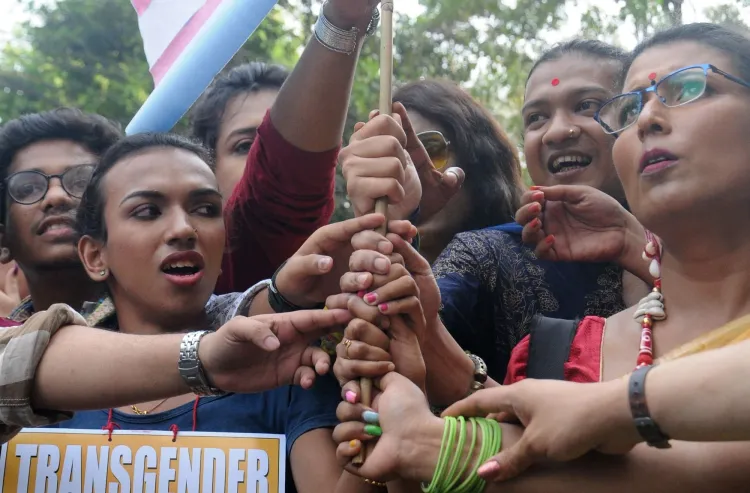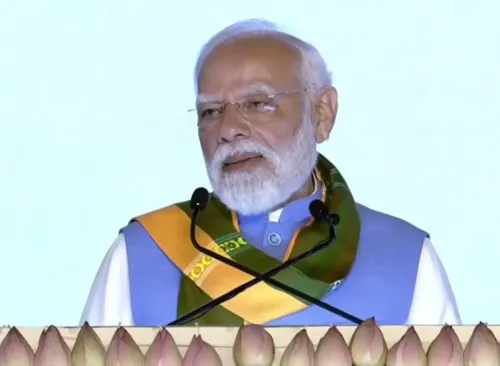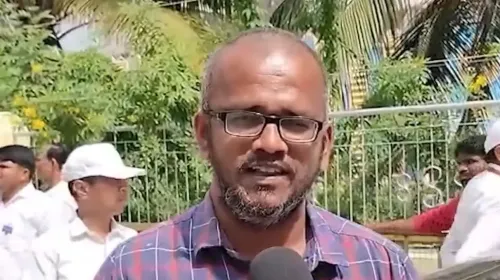Is India Really Committed to Upholding Dignity and Equality for Transgender Persons?

Synopsis
Key Takeaways
- India's commitment to transgender rights reflects a significant societal shift.
- Legal recognition as a 'third gender' empowers transgender individuals.
- Comprehensive welfare schemes promote inclusion and opportunity.
- Ongoing efforts aim to dismantle historical marginalization.
- Support systems are crucial for the empowerment of the transgender community.
New Delhi, Nov 19 (NationPress) The Indian government has expressed its dedication to ensuring that transgender individuals receive dignity, autonomy, and equal opportunities. This statement was made on Wednesday.
According to the 2011 census, there were approximately 487,000 individuals in India who identified as “other” in the gender category, a number believed to represent the non-binary population of the nation.
Historically, this community has faced significant marginalization; however, the past decade has witnessed substantial legal and policy advancements aimed at their upliftment.
“India has made remarkable progress in tackling the historical marginalization of the transgender community through extensive legal protections, welfare initiatives, and enhanced digital access. This transformation signifies a growing awareness and a commitment to fostering inclusivity and equality within Indian society,” noted the government in an official statement.
“As India moves towards a more equitable future, ensuring that transgender individuals live with dignity, autonomy, and access to opportunity remains fundamental to its democratic and human rights obligations,” it added.
In a landmark ruling in April 2014, the Supreme Court of India officially recognized transgender individuals as a “third gender,” affirming their right to self-identify and directing the government to ensure their legal recognition and protection against discrimination.
This was followed by significant government actions, such as the enactment of the Transgender Persons (Protection of Rights) Act, 2019, which was notified on January 10, 2020; the Transgender Persons (Protection of Rights) Rules, 2020 to facilitate the act’s implementation; the establishment of a National Council for Transgender Persons to advise on policies and programs; and the launch of the National Portal for Transgender Persons on November 25, 2020.
“These legislative measures and initiatives have established a framework for systemic support and empowerment, promoting inclusion, dignity, non-discrimination, and integration of transgender individuals into society, thereby enabling them to thrive with equal rights and opportunities,” the government emphasized.
Additionally, the SMILE Scheme, launched in February 2022, offers livelihood support, skill training, and shelter through Garima Greh centers, along with Ayushman Bharat TG Plus health coverage. Furthermore, the Department of Social Justice & Empowerment has issued an “Equal Opportunities Policy for Transgender Persons” to ensure equitable access to employment.
These combined efforts are designed to foster inclusion, dignity, and equal opportunities for transgender citizens, as stated by the government.









